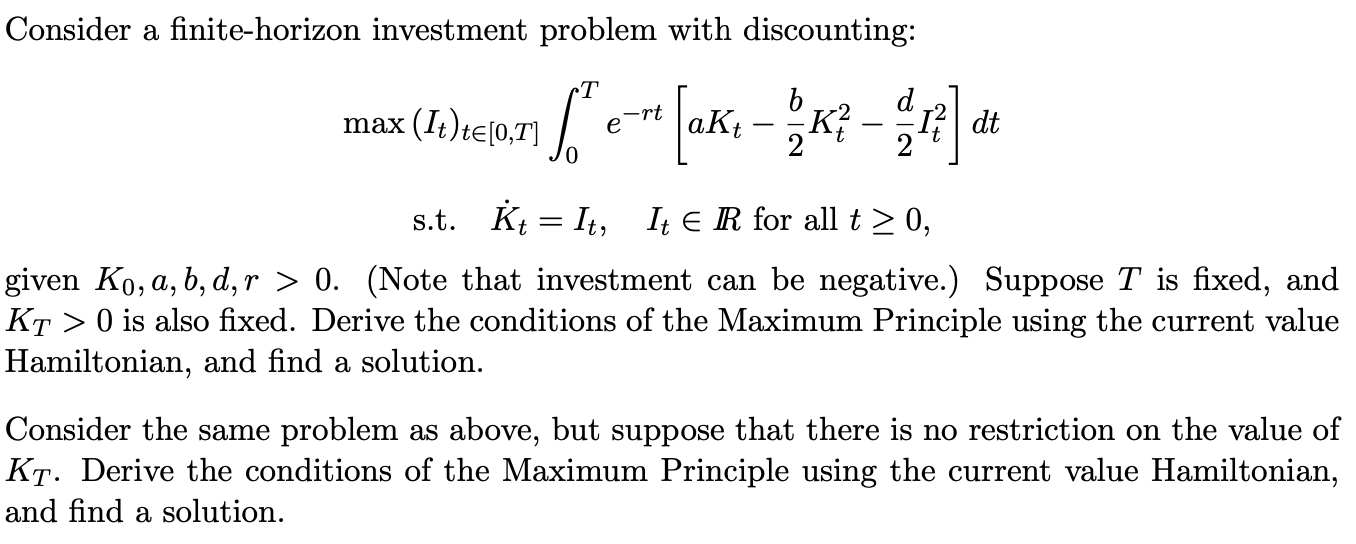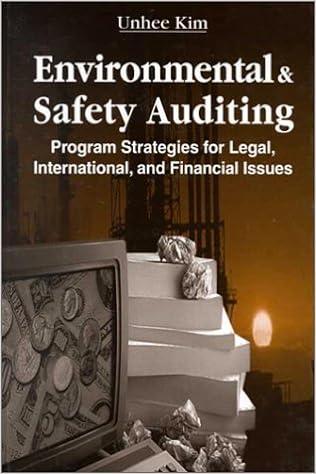Answered step by step
Verified Expert Solution
Question
1 Approved Answer
Only need help with the second part which starts with consider the same problem as above, but suppose.... Thanks a lot! Consider a finite-horizon investment

Only need help with the second part which starts with "consider the same problem as above, but suppose...". Thanks a lot!
Consider a finite-horizon investment problem with discounting: max(It)t[0,T]0Tert[aKt2bKt22dIt2]dt s.t. Kt=It,ItR for all t0, given K0,a,b,d,r>0. (Note that investment can be negative.) Suppose T is fixed, and KT>0 is also fixed. Derive the conditions of the Maximum Principle using the current value Hamiltonian, and find a solution. Consider the same problem as above, but suppose that there is no restriction on the value of KT. Derive the conditions of the Maximum Principle using the current value Hamiltonian, and find a solution. Consider a finite-horizon investment problem with discounting: max(It)t[0,T]0Tert[aKt2bKt22dIt2]dt s.t. Kt=It,ItR for all t0, given K0,a,b,d,r>0. (Note that investment can be negative.) Suppose T is fixed, and KT>0 is also fixed. Derive the conditions of the Maximum Principle using the current value Hamiltonian, and find a solution. Consider the same problem as above, but suppose that there is no restriction on the value of KT. Derive the conditions of the Maximum Principle using the current value Hamiltonian, and find a solutionStep by Step Solution
There are 3 Steps involved in it
Step: 1

Get Instant Access to Expert-Tailored Solutions
See step-by-step solutions with expert insights and AI powered tools for academic success
Step: 2

Step: 3

Ace Your Homework with AI
Get the answers you need in no time with our AI-driven, step-by-step assistance
Get Started


